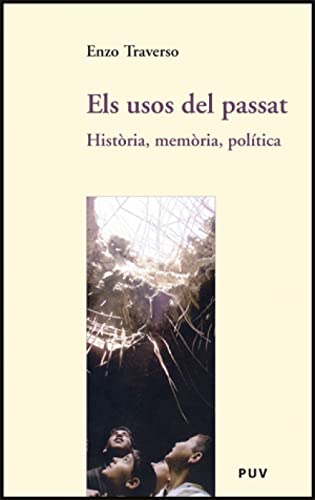
Indeed, in a civil war the promise of a new dispensation could be a powerful weapon.Īlready in the American civil war, Abraham Lincoln’s armies linked slave emancipation to a radical new military code. The challenge, amid the violence, was to build a new order.
Enzo traverso fire and blood license#
If civil wars smashed existing laws and morality, this did not license an orgy of absolute violence. However radical the left’s tactics, their ultimate aim was not the physical annihilation of the enemy but social transformation. In so doing he falls in with the most basic convention of the liberal order that he seeks to criticise - the separation of the political and the economic.įor his heroes in the interwar left, by contrast, the ultimate target of armed struggle was always capitalism and the social and political order erected on it. He frames Europe’s civil war as a political and cultural event, and rules out consideration of economic and social crisis at the start. The contradiction is built into Traverso’s entire approach. Yet in interpreting Europe’s history between 19 as a “religious” war, and by treating the combatants as akin to religious zealots, he in fact mobilises the language and concepts of only one side in that conflict, namely those of the right. In his bid to resurrect the history of anti-fascism, Traverso clearly aligns himself with the left. The cause on both sides was not merely that of national interest, but sacred and redemptive ideology. Europe, in this new age of civil war, Traverso suggests, was experiencing something akin to the religious wars of the 16th and 17th centuries. In interwar Europe the polarised division into left and right went to the heart of personal identities. Tragic choices were made under extreme conditions. Faced with Hitler’s onslaught, one could not always afford to pick one’s allies. We may regard Stalinism with horror, and especially with the benefit of hindsight. If today Europe is democratic and peaceful, it owes a “debt towards those who fought to build it” even if that leaves us with an uneasy complicity with Soviet communism. If all violent political struggles involve tragedy, some deserve more than distanced moral evaluation. Human rights and Holocaust consciousness, not politically compromised anti-fascism, are the new civic religion.Īgainst these apostles of anti-totalitarianism, Traverso sets himself to reinstating the old anti-fascist verities. Their anglophone counterparts are the new historians of the Second World War, scholars such as Norman Davies and Timothy Snyder, who see in that conflict little more than a clash of dictatorships that made victims or perpetrators out of everybody who inhabited the “bloodlands”. From the 1970s a bevy of historians and intellectuals, many of them, such as François Furet, former communists, began to re-evaluate the entire epoch, criticising and historicising both fascism and anti-fascism and tracing their bloody struggle all the way back to the French revolution, which was recast as the origin of all modern ideological conflict. In Greece its reverberations could still be felt 70 years later in 2015 as Syriza vainly summoned the heroic memory of the partisans against the might of the Eurozone.īut these days in France and Italy, anti-fascism has fallen on hard times. Cloaked in the mythology of the resistance and Popular Front anti-fascism, as well as the hidden histories of collaboration, it left a deep imprint on postwar political culture. He argues that a state of more or less open civil strife extended around the Mediterranean from the 1930s to the 1940s - from Greece and Yugoslavia to Italy, France and Spain. Traverso provides an unfamiliar perspective on these decades, one of European “civil war”. Politics became a matter of life and death. War and civil war merged, as partisans and their pursuers took hostages and made reprisals, German flamethrowers blasted the hillside and American bombers rained down fire. To break open our complacency, in his brilliant opening chapter Traverso plunges us into the blood-soaked history of his home region of Piedmont, where for two terrible years between 19 the Wehrmacht and their fascist henchmen fought a final stand against insurgent partisans and the overwhelming might of the allied armies.

How can we understand the “age of extremes” (1914 to 1945) from a present that is in general terms allergic to “ideology” and convinced that “there is no alternative”? What happens when an anodyne and self-satisfied liberalism projects its values back into an earlier era of intense political struggle?


By Enzo Traverso, translated by David Fernbach, Verso, 304 pages, $27Įnzo Traverso’s provocative book, which first appeared in French nine years ago, poses a profoundly important question to modern history.


 0 kommentar(er)
0 kommentar(er)
